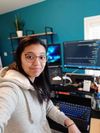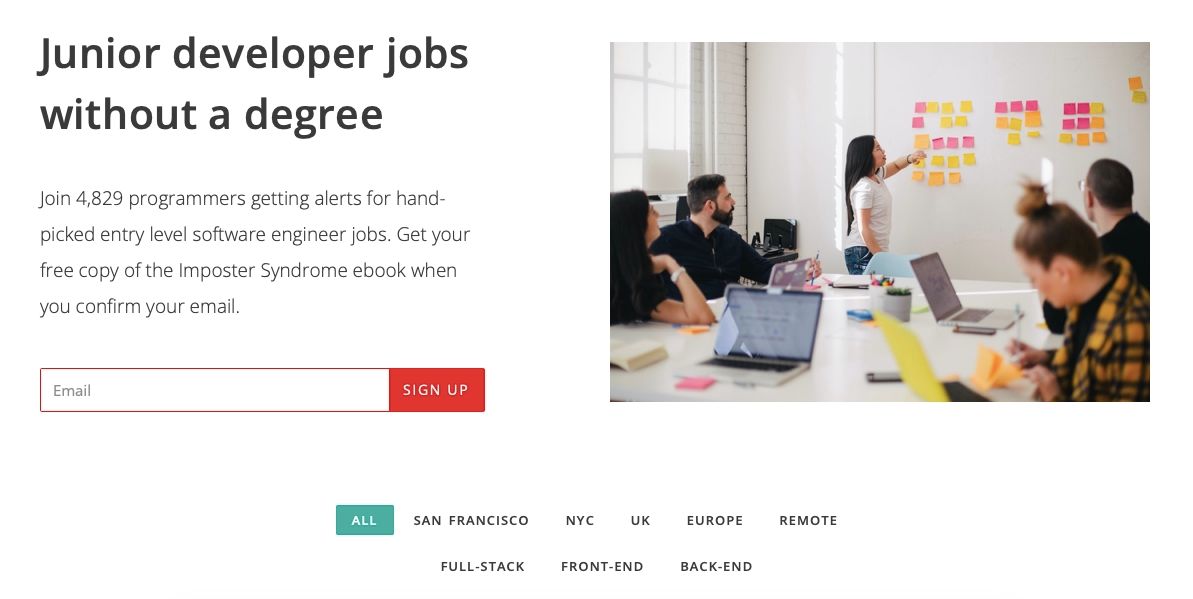Jessica caught my attention recently with her excellent Coder Coder website aimed at providing resources to people who are starting to learn to code. Given that she is a self-taught web developer I thought it would be great to find out how she learned herself, her tips for beginners and that all-important advice on getting a job withno Computer Science degree.
Hey, it’s great to have you on board for an interview. Could you give an introduction for developers who want to know more about you?
Hello! My name is Jessica and I run Coder Coder, a website that helps beginners learning web development. I was always interested in computers growing up, whether it was playing around with Corel Draw, Windows games, and running a local bulletin board system. I had taught myself HTML and basic CSS when I was in middle and high school, and even though for some reason I never considered programming when I was in school, I still loved building blogs and websites just for fun.
Can you tell us what your current job involves?
Currently I’m a full-time freelancer as a front-end developer, working for the marketing department of a tech company. I love my team and I’ve really grown to love building out the front-ends of websites. It’s always a good challenge to translate a designer’s vision into a full-fledged website.
Previously, I worked for 6 years in advertising, which was my first “real” developer job. I did full-stack, and although I enjoy SQL queries I’ve really grown to like working with CSS and building website layouts.
How did you first get interested in programming?
I sort of fell into programming. After college I didn’t really know what I wanted to do in life, so I was working a lot of office temp jobs and just kind of coasting. By chance, I applied to a data entry job that was at a small web dev shop. The owners ended up teaching me some back-end programming, and over the course of two years I learned as much as I could. Then I was able to parlay that experience and my skills into landing my job at the advertising agency.
How did you learn to code?
The weird part about my story, at least nowadays, is that I never took a single class, tutorial, bootcamp, or read a book. All of my learning experience was on the job. I was fortunate in that my jobs were willing to train me. I had a notebook where I kept detailed notes when I would get stuck on an issue for hours, so I could write down the answer for next time.
I could ask for help from my bosses or coworkers, but I always tried as much as I could to figure out the answer by using Google and Stack Overflow. It’s actually impressive how quickly you can get something to work when there’s a deadline looming.
Did you ever consider doing a degree in Computer Science and if not, why?
Not really. I was more interested in the arts and humanities when I was younger.
What is the most fun thing for you about programming?
I really like the problem-solving aspect of programming, even though it is oftentimes quite torturous. It’s the worst feeling in the world when you have an error that you can’t seem to fix no matter what you try, but the absolute best feeling when you finally figure out the solution. Then you just have to rinse and repeat all over again for the next problem! I do also really like that as programmers and developers we can help businesses and people.
Can you talk us through the process of getting your first job as a web developer?
I found my first web development job through a recruiting agency. I had been applying to web developer jobs online, and one of the listings had been posted by a recruiter, who then contacted me. They really helped me in my job search, because they knew all the open jobs, and set me up with interviews. I had two or three interviews where the company liked me, but I was simply too entry-level for what they were looking for.
I eventually found the ad agency who was willing to teach me. I had a very brief CV and no GitHub projects. I think I honestly got the job because I had brought a notebook to take notes with me, and somehow showed them that I was willing to put in the work. Unfortunately, I think it’s a bit more competitive nowadays for job applicants, as you really have to have a solid GitHub and portfolio and study interview questions.
Have you ever felt imposter syndrome? And if so, how did you deal with it?
I was terrified the first year that I was in my agency job. I mean, I had coworkers who had gotten bachelor’s and master’s degrees in computer science, and I was here with my art degree. I definitely felt a lot of impostor syndrome at the beginning, even though all my coworkers were really supportive and always willing to help me out with questions.
The only thing that can help with impostor syndrome is time. While the first year was pretty difficult, I did start feeling less incompetent in my second year on the job. As I learned more and more, and things started to stick, I started feeling a bit more confident in my own skills.
By year five, I actually felt reasonably confident, that even if I didn’t know how to do something, I knew enough that I could Google to find the answer to it. That was a big realization. And the fact is, no one knows everything. There’s always something more to learn, no matter how many years you’ve been in the industry.
Has your lack of Computer Science degree ever been brought up when looking for jobs?
It hasn’t come up at all for me, although since that first round of interviews, I haven’t had to do more interviews. I’ve been able to find freelance work through former coworkers. It really helps to have a good network of people, because if people enjoyed working with you at your job, they will seek you out even afterwards.
Do you have any tips for people that are looking for their first job in web development?
As someone who has interviewed web developer job candidates, I would highly recommend that you have a solid portfolio and GitHub page. You need to show potential employers that you have the skills that they need for their job. Specifically, try to make your portfolio projects as full-fledged as possible.
Don’t stick to the generic bootcamp projects or tutorial projects, because as an interviewer, you tend to see a lot of the same type of thing. Try to go that extra mile when coming up with project ideas, and stand out from the crowd.
Can you tell us about any projects you make and plans for the future?
Currently I create mini tutorials on Instagram, and am working on creating courses aimed at beginner front-end web developers. I do my best to help answer questions from people who are just starting out, because coding gave me such a rewarding career, and I want to help others do the same. You can also follow my blog at Coder-Coder.com, and sign up for updates on my upcoming course, Responsive Design for Beginners.



